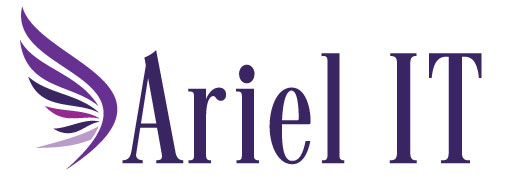What Do Managed Services Providers (MSPs) Do, Anyway?
A question I often get from small business owners is “what does a Managed Service Provider (MSP) do?”. The short answer is that we help ensure your systems run smoothly, stay secure and up-to-date, and deal with the day-to-day technical issues so that you can remain focused and productive on your core business.
The long answer is that MSPs assume responsibility for one or more of your business’s IT services such as email, help desk, cybersecurity, networking, data storage, cloud integration, backup and restore, patching, and more. The MSP remotely monitors, updates, and manages the service while reporting on quality, performance, and availability of the service. MSPs can help you acquire software and hardware, then keep track of and report on hardware assets and software licenses.
Let’s take a closer look at how MSPs help small businesses:
On-Demand IT Staff
MSPs provide access to experienced IT staff that you’d otherwise have to hire on as full-time employees, even if your IT needs are not consistently full-time work. Compared to hiring a single IT technician in-house, MSPs offer expertise in multiple technologies and vendors and are continuously training on new technologies. MSPs provide support hours based on your SLA, which can be around the clock: something you can achieve in-house only with multiple hires that work shifts or are always on-call. Your small business benefits from having these experts on-demand, without paying for all of their time and benefits.
Adopt New Technology Faster
There are several barriers to adopting faster, more efficient tech solutions for small businesses who try to provide all of their IT in-house. Some of these barriers include steep learning curves, sunk capital costs for on-premise infrastructure and expensive migration projects, and the effort to assess the available options.
MSPs research and evaluate new providers, hardware and software applications to find cost-effective solutions with added value for their clients. MSPs can reduce technology adoption barriers by providing infrastructure as a service (OpEx, not CapEx), managing your license agreements, staffing experts for migrations, training your employees, and providing business intelligence through reporting to help you make informed choices on which solutions make sense for your business objectives.
Outsource Your Day-to-Day IT Management
How much would your bottom line increase if your employees could focus on strategic projects instead of maintenance? MSPs bring experience, efficiency, and scale to managing the day-to-day IT requirements. Their business model – supporting other clients just like your business – gives them buying power to provide more robust help desk ticketing systems, efficient responses, and monitoring tools that individual small businesses could not afford on their own. MSPs act as an extension of your business by keeping your infrastructure and computers running with minimal interruptions to productivity.
Improved Security
Large organizations can afford specialized cybersecurity groups and security patching teams who work full time on identifying threats, preventing cyber attacks, and keeping your systems and applications patched. Small businesses do not have this luxury, so they turn to MSPs for assistance. MSPs stay informed on developing threats, monitor application and hardware vendors’ patch release cycles, update antivirus software, and upgrade network security configurations to keep your business secure from malware, viruses, and hackers. Fewer attacks and infections mean less downtime for your business, more trust from your customers, and fewer late night headaches for you.
Backup and Disaster Recovery
An MSP can provide your business with peace of mind by providing a backup and restore service, as well as Disaster Recovery planning. Ideally, your business will never need to implement its Disaster Recovery plan, but many unforeseen events are outside of your control. MSPs bring experience and training so that your business is prepared and back to productivity as quickly as possible.
How Does it Work?
There is no one-size-fits-all IT solution for every small business out there, so MSPs provide a menu of service options to meet your IT needs and help your business grow. If you’re a new client, the engagement will usually start with an assessment to discover your current technical environment, areas for improvement, and opportunities to support your business goals.
Ongoing maintenance, help desk support, security, training, monitoring, and reporting are delivered under a Service Level Agreement. This agreement sets the parameters for what you can expect from your MSP: response times, performance targets, security guarantees and more that balance your needs with your budget.
Find Out More:
- Learn about our Managed IT Services.
- arielMIS helps our customers assess and adopt new technology with Cloud Services.
- Discover how arielMIS Data Security Services can improve cybersecurity for your business.
Do you need help finding the right services for your business’s needs? Schedule Your Free Evaluation Visit to discover how arielMIS can provide your business with expert, cost-effective support and security.
arielMIS is a Managed Service Provider (MSP) providing businessCARE™ IT services designed to keep you and your employees productive and safe. Contact Us if you’re interested in learning more about our services.
